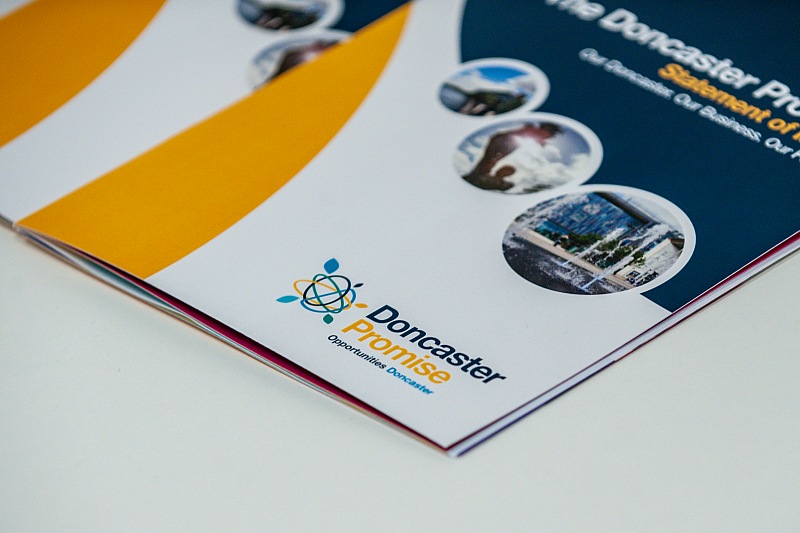Over 100 businesses have pledged to support the Doncaster Promise – a commitment to work with schools and young people across Doncaster to raise careers awareness and get them better prepared for work in a post-pandemic world.
Comparing the latest quarter, September-November 2020, with the pre-pandemic quarter of January-March 2020, the Office for National Statistics’ (ONS) January 2021 labour market overview reports:
- Unemployment for young people has increased by 68,000, a 13% increase.
- The unemployment rate has increased to 14.2% from 12.1%.
- The number of young people in employment has fallen by 231,000, a 6% fall.
- 37,000 more young people have become economically inactive.
With youth unemployment rates in the UK soaring, and the global pandemic having exposed some of the fundamental inequalities in our society, it’s no surprise that emphasis has to be placed on the skills agenda in order to help rebuild the country and economy.
Doncaster businesses have quickly shown demonstrated their belief that young people are part of the recovery solution: over 200 Kickstart Scheme placements through Doncaster Chamber have been accepted since the scheme launched.
At the relaunch of the Doncaster Promise, a commitment spearheaded by Doncaster Chamber to help local businesses partner with education providers, Chamber CEO Dan Fell spoke about its timeliness and relevance as he reiterated that closing the skills gap will be critical to the region as it recovers from the pandemic.
“Bridging the gap between business and education is more important than ever and the Doncaster Promise is absolutely essential to the delivery of Doncaster’s 2030 education and skills strategy.”
“Only 11% of Doncaster’s jobs are termed as being highly skilled and only 43% of the working age population has a Level 3 qualification compared to a national average of 58%. Addressing these systemic challenges is imperative to closing our productivity gap and delivering inclusive economic growth for our communities.
“The Promise is not prescriptive, nor is it a one size fits all approach. Businesses of varying sizes from different sectors have proven that they can offer valuable experiences for students. All we ask is for them to do what they can.”
Attendees heard first-hand experiences from those who have already signed and are actively involved in careers education in the borough.
Representatives from Unipart Rail credited the Promise as having given structure to their ongoing careers-related activity in schools. As schools remain closed for all except the children of key-workers, and teachers deliver more and more remote sessions, Unipart recognised the unique role businesses can play in helping them to keep delivering excellent careers education.
HR Partner at Unipart Mandy Kendrick said, “Unipart Rail are proud and excited to sign up to the Doncaster Promise again in 2021. These partnerships with the local community allow us to be involved with truly meaningful interactions with students of all ages and it has also given us a platform – through the Enterprise Adviser Network – to be able to influence the careers strategy of a local school. We very much look forward to taking part in many more events such as careers fairs, skills talks and employability days in the coming 12 months’.”
But it isn’t just large businesses who have been getting stuck in. Work Creative, a Doncaster-based branding, print and digital design agency with fewer than 10 employees, have hosted careers talks, CV workshops and interactive skills days.
In a typical session, students are given creative design briefs for fictitious companies. At the end of the session put their work forward and explain their design choices. As well as offering students an insight into a day in the creative industry, the process helps them to develop their communication and creativity skills.
Director Warren Hands said, “These are incredibly smart young people who are curious about what options are out there for them, and there’s nobody better placed to tell them about it than the people who work in these professions for a living.”
“In the long-run, these students will leave education knowing exactly what employers are asking from them and how they can get on a path into their industry.”








